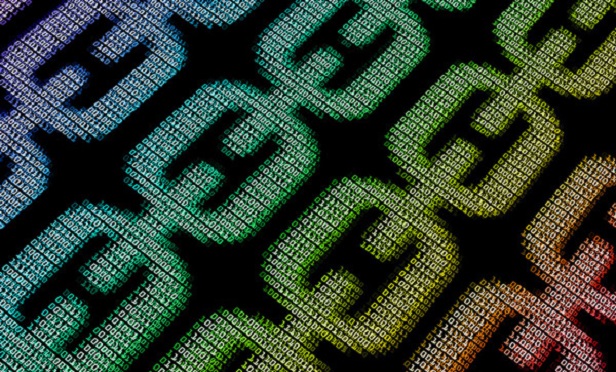Based on events to date, it's reasonable to project that blockchain has great potential to give individuals in emerging nations new access to markets in developed nations as part of DeFi, or decentralized finance. Blockchain's potential for this is as vast as the growing access, through smartphones, to internet service for billions of heretofore unconnected individuals.
Some U.S. companies and multinationals will doubtless gain significantly from blockchain's role as a key commercial conduit. This is clear from blockchain's embryonic links connecting individuals in frontier and developing economies to products and services in Europe, the U.S., China and Japan.
Blockchain is:
- Already enhancing global accessibility to banking-like services through the use of cryptocurrency transmitted over transaction blocks, which will eventually make these services accessible to multitudes of "unbanked" individuals. Borderless bank-like companies are emerging, making their services available to anyone anywhere anytime. Among them is the Celsius Network, which pays extraordinarily high interest rates on deposits of a wide range of cryptocurrencies, including stablecoins such as USD Coins (denoted as USDC), based on the dollar. When deposited with Celsius, USDCs were recently earning an annual rate of 8.43%, payable weekly. (Though Celsius isn't FDIC-insured, its custodian provides insurance.)
- Uniquely suited to serving as infrastructure for global retail transactions, which provide new shopping options to consumers in remote areas (but with mobile phone service), as more retailers accept borderless digital payments.
- Inspiring applications integrated with virtual reality (VR) technology to enable shoppers' virtual avatars to "try on" clothes in online retail environments from anywhere cell service is available. Some Nordstrom department store locations in the U.S. have been experimenting with on-site VR-assisted apparel shops. Blockchain applications under development would take this you-are-there concept to consumers located hundreds or thousands of miles from the nearest real apparel store.
So, as consumers in developing nations will eventually be able to shop for apparel with confidence of fit, this combination of blockchain and VR could significantly expand global retail commerce. Thus, regarding apparel as well as other consumer products purchasable online, the formerly unbanked will no longer be "unshopped."
As frontier economies get more mobile phone infrastructure, and as download speeds increase in the next few years from 5G, this will create significant opportunities for retailers and, in turn, investment opportunities for all clients in retail stocks. Additionally, this scenario holds promise for presenting ground-floor opportunities to HNW clients regarding private equity and venture capital in entities developing targeted blockchain tools for the retail industry. Further, if a consumer's avatar can try on clothes virtually from home, why couldn't it visit a financial advisor?
- Already enabling global trading in various illiquid nontraditional assets. Though securities trading via blockchain is still a regulatory work in progress (it will eventually get federal approvals, but at a glacial pace), blockchain is being used for tokenization — the splintering of ownership of just about any valuable asset into many pieces. Currently being applied to works of fine art, tokenization is an option for a wide range of clients seeking alternative investments. This way, an investor in Sri Lanka can own a minute piece of a Picasso located in Milan.
As more and more assets become "tokenized" — potentially, even the title to the car or home you own — all kinds of assets will likely follow suit. For example, Brooklyn Nets point guard Spencer Dinwiddie recently caused a stir when he announced his intention to tokenize his Nets contract (naturally drawing resistance from the NBA). Consumers owning tokenized assets might eventually use them as collateral to get loans from DeFi institutions such as Celsius.
- Now in use to improve existing governmental functions in developing economies. This is already happening concerning deed registration, which has been plagued by disorganization and ambiguity in developing nations, including some in Africa. This problem has led to confusion and corruption that wouldn't be possible in blockchain-stored records, so blockchain has been introduced in pilot deed registration programs in several African nations. Further, Rwanda — and Honduras in Central America — have signed deals with contractors for the creation of blockchain-based land-titling systems. This will pave the way for REITs in such countries, enabling global investors, possibly including your clients, to position for returns from the rapid development that can occur in frontier economies.
- Currently providing governments in developing nations with a new tool to improve election security, which supports democracy and thus enhances trade and global investment. And, given the concerns in the U.S. about election security, domestic elections clearly could benefit from blockchain's superior accountability, transparency and immutability.
These and other existing and potential blockchain applications will likely produce significant investment opportunities, beginning in the next few years. Advisors aware of this potential today will be better able to position clients, especially HNW individuals, to benefit from the far more connected world that blockchain is already starting to create.
 Eric C. Jansen is the founder, president, and chief investment officer of Finivi Inc., an SEC-registered investment advisory firm based in Westborough, MA. He also founded BlockSocial.com, a blockchain technology media site. Trading and investing in digital assets is highly speculative and comes with many risks.
Eric C. Jansen is the founder, president, and chief investment officer of Finivi Inc., an SEC-registered investment advisory firm based in Westborough, MA. He also founded BlockSocial.com, a blockchain technology media site. Trading and investing in digital assets is highly speculative and comes with many risks.

 (Image: Shutterstock)
(Image: Shutterstock) 
 Eric C. Jansen is the founder, president, and chief investment officer of
Eric C. Jansen is the founder, president, and chief investment officer of 

